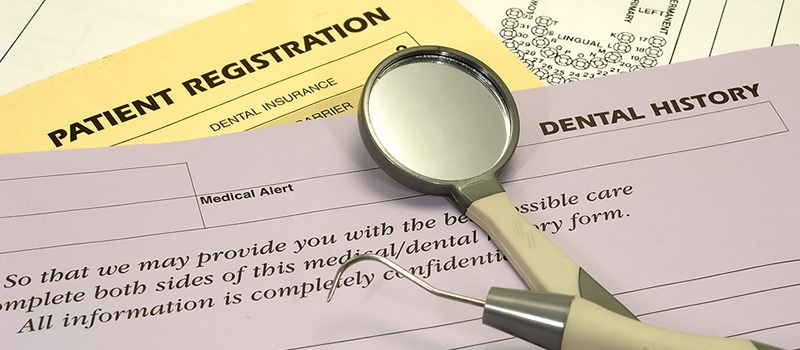Does Medicare Cover Cataract Surgery?
As we age, our bodies undergo numerous changes, some of which can negatively impact our quality of life. These challenges can be as simple as getting eyeglasses or contact lenses. Other times, though, the challenge can be a bit more complicated like with developing cataracts. Cataracts are a common eye condition that can lead to blurred vision and other complications. This raises the question: does Medicare cover cataract surgery? There isn’t a short answer to this comment question, so we’ve created this detailed guide to delve into this topic and explore the types of coverage offered by Medicare for cataract surgery, the types of lenses covered, and other related aspects such as astigmatism correction and follow-up care.
Understanding Cataracts
Cataracts develop as the proteins within the eye’s natural lens become cloudy, often leading to blurry or distorted vision. This is a common condition that can occur as a result of aging, eye injury, genetics, long-term steroid use, and other factors. In fact, by the age of 75, one in two individuals is likely to have developed cataracts.
Symptoms of Cataracts
Typically, cataracts present several symptoms, including:
- Cloudy or blurry vision
- Sensitivity to light or glare
- Difficulty seeing at night
- Halos around lights
- Need for brighter light for reading
- Fading or yellowing of colors
- Frequent changes in eyeglass or contact lens prescription
Cataract Surgery: An Overview
Cataract surgery is one of the most commonly performed surgical procedures in the United States, with approximately 2 million individuals undergoing the procedure annually. The surgery involves the removal of the cloudy lens, which is then replaced with a clear, artificial one. This outpatient procedure is a quick, effective, and generally safe path to clear vision, with overnight hospital stays typically not required.

Is Cataract Surgery Covered by Medicare?
Medicare is a federal health insurance program designed primarily for individuals aged 65 and older. It provides coverage for a range of medical services, including doctor visits, hospital stays, and prescription drugs. When it comes to cataract surgery, the coverage can vary depending on the specific Medicare plan.
Medicare Part B
Medicare Part B provides coverage for medically necessary services used to treat and diagnose health conditions. This includes cataract surgery, which is considered a medically necessary outpatient procedure. Under Part B, Medicare covers not only the cost of the surgery but also that of the intraocular lens (IOL) implanted during the operation.
However, Part B coverage does not extend to any additional fees or upgraded lens options that may eliminate the need for glasses post-surgery. Also, the coverage does not imply that the surgery will be completely free of cost. Beneficiaries may still have to pay the 20% coinsurance amount and the Part B deductible.
Medicare Supplement Insurance (Medigap)
Medigap policies, sold by private insurance companies, are designed to help cover the costs not covered by Original Medicare. These include copayments, coinsurance, and deductibles. Certain Medigap policies may even cover services not approved by Original Medicare, such as medical care during foreign travel. However, they typically do not cover long-term care, vision or dental services, hearing aids, prescription eyeglasses, corrective lenses, or private-duty nursing.
Medicare Advantage (Part C)
Medicare Advantage, or Part C, is an all-in-one alternative to Original Medicare. Sold by private companies, these plans bundle Part A (hospital coverage), Part B (doctor and outpatient services), and sometimes Part D (prescription drug coverage) into one comprehensive plan.
Specific Aspects of Cataract Surgery Coverage
Does Medicare Pay for Cataract Surgery?
Yes, both Original Medicare and Medicare Advantage cover cataract surgery that involves the removal of a cataract and the replacement with a conventional intraocular lens. Original Medicare covers 80% of the cost of cataract surgery, with the patient responsible for paying the remaining 20% (either as out-of-pocket expenses or with supplemental insurance).
What Type of Lens Does Medicare Cover for Cataract Surgery?
Medicare covers a conventional intraocular lens (IOL), a small, clear disc that replaces the damaged eye lens. However, coverage does not extend to upgraded artificial lens options that may eliminate the need for glasses following the surgery.
Does Medicare Pay for Cataract Surgery with Astigmatism Correction?
Medicare generally does not cover cataract surgery to correct astigmatism, as it is considered not medically necessary. However, you can choose more advanced IOLs, like multifocal or toric lenses, which can improve vision at multiple distances and reduce astigmatism.
Does Medicare Pay for Glasses After Cataract Surgery?
Yes, Medicare covers one pair of prescription glasses with standard frames or contact lenses prescribed by your doctor after your cataract surgery is complete.

Applying for a Medicare Plan
During the annual open enrollment period, which runs from October 15 to December 7, you can select the Medicare Advantage plan that best suits your needs. If you foresee needing cataract surgery in the future, check to see which plan offers the most suitable coverage for you and wait to be Medicare-approved.
When signing up for Medigap, the best time to enroll is during your six-month enrollment period, which begins when you sign up for Original Medicare.
Conclusion
Understanding Medicare coverage for cataract surgery can be a complex task, given the various plans and factors involved. However, with the right information and advice, you can make an informed decision that best suits your needs.
If you have further questions about Medicare or insurance, don’t hesitate to contact us at the Fabian Ramirez Insurance Agency. Our team of experts are always ready to assist you with your insurance needs, ensuring you receive the personalized care and guidance you deserve.


